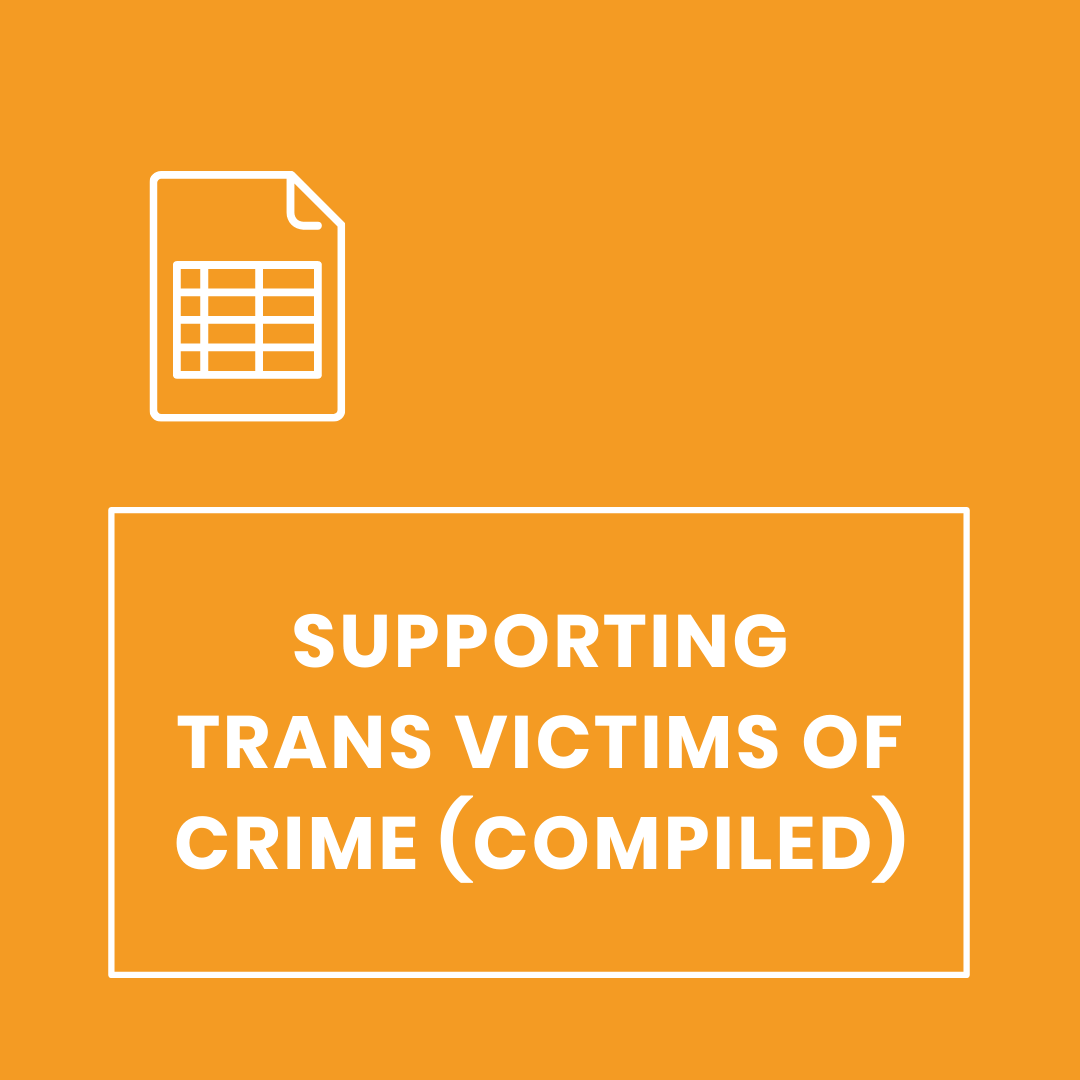Supporting Trans Victims of Crime (compiled)

 Introductory
Introductory  Service Providers
Service Providers Trans Communities
Trans Communities Resources for friends, loved ones, and community members
Trans and non-binary people experience high rates of violence and victimization (including bullying, sexual assault, domestic violence, stalking, and hate-motivated bias).
We all lean on loved ones, friends, colleagues, and professionals, especially during difficult times. Knowing how to best support trans and non-binary loved ones and friends after a crime can help reduce the long-term effects of trauma and strengthen your relationship. Here are some things you can do:
- Listen
- Reassure
- Empower
- Recruit your own support
- Gently help the survivor stay connected
- Be patient
Resources for loved ones and community members:
- Supporting someone who has been victimized (blog)
- A Guide for Partners and Friends of Transgender Sexual Violence Survivors
- A Guide for Facilitators of Transgender Community Groups: Supporting Sexual Violence Survivors
- Know Your Rights! (VAWA)
- Trans-specific Power and Control Tactics
- Safety Planning: A Guide for Transgender and Gender Non-Conforming Individuals who are experiencing intimate partner violence
Resources for victim service providers:
- Online training webinars for victim service providers
- Sheltering trans and non-binary individuals
- Part of the Solution: Gender-Integrated Sexual Assault Support Groups
